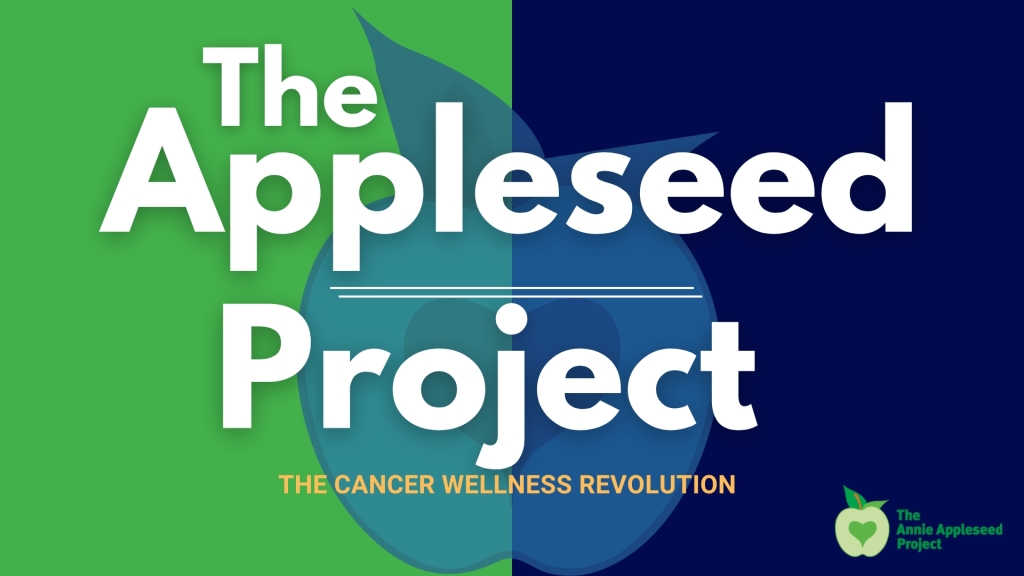We at the Appleseed Project have an AWESOME OPPORTUNITY for a 10K Matching Grant from a Generous Donor in the NEXT 30 DAYS! Please consider a donation to help us take advantage of this generous offer by meeting our deadline of August 30th 2025!
As an AP Board Member I have a special bonus for you as well!
Your Kindness Would Mean the World to Us.

Our Cancer Wellness Revolution Needs You! Every Contribution, Big or Small, Makes a Difference.
Together, We Honor Those Who Have Gone Before Us & Those Crying Out for Help Right Now!
Your Support Today Enables us to Secure Our 2026 Conference & Provide Scholarships to Those with Active Cancer!
Special Board Member Offer
As a member of the Board of Directors for The Appleseed Project, I have some special offers for you. If you make a donation of $10 before August 30th, you will receive a complimentary e-copy of my Estrogen Handout. Donating $20 will also include my Detoxification Handout. But there is more!
While Speaker Presentations from past conferences are available on the AP website, Round Table discussions are not accessible to the public. This is a unique opportunity to gain valuable insights otherwise unavailable. With a donation of $25 or more, you will additionally receive the “cliff” notes from the AAP 2025 Round Table discussion on Natural Alternatives to Tamoxifen and Aromatase Inhibitors.

How to Receive Your Bonuses
After making your donation, simply forward your donation confirmation via the Contact Us page on my website, and the information will be sent to you electronically.
Join the Movement
Take advantage of this opportunity and support Our Cancer Wellness Revolution, so we can continue to make a difference for those living with cancer.
Together, We Empower Hope in Healing.
| Please Consider Making a DONATION now. To help us take Advantage of this Generous Offer by Meeting our Deadline of August 30th 2025. |

Elyn Jacobs is a breast cancer survivor and holistic cancer strategist who helps people make healthier, less-toxic choices for their healing. She emphasizes the importance of not just surviving cancer but surviving well and reducing the risk of recurrence. Elyn is on the Board of Directors for the Appleseed Project and is on the Medical Advisory Board for BeatCancer.Org. and the Advisory Board to the Radical Remission Project. She was a Contributing Editor for The Truth About Cancer and has written for numerous journals and publications. She was the former Executive Director of the Emerald Heart Cancer Foundation and the creator and host of the Survive and Live Well Radio Show. To contact Elyn, visit www.elynjacobs.com. Elyn offers consults via Skype, phone, or in-person. Elyn does not provide online advice.
DISCLAIMER:
Elyn Jacobs does not provide medical advice. The information provided is for general information only. No online site should be used as a substitute for personal medical attention.
This information is for educational purposes only and is not a recommendation to forgo medical advice and treatment. This post is not intended to treat, cure, prevent, or diagnose any disease or condition. This post does not represent medical advice, nor should it be considered to be medical advice or a replacement for medical advice. I encourage you to discuss this information with your integrative oncologist, naturopathic doctor, or conventional oncologist. The information provided is from my research and not to be taken as scientific evidence. Elyn Jacobs Consulting, Inc. does not provide endorsement for the content, claims, or products discussed in this article.
Affiliate Links Disclosure:
Some product links on some posts are affiliate links. This website is monetized in part using affiliate links. This means that if you were to click on a link that is an affiliate link and purchase an item after clicking on that link, I may receive a small percentage of the sales price. I only recommend products that I love and use often. Thank you for your support!
Follow Elyn on Facebook
Follow Elyn on LinkedIn


